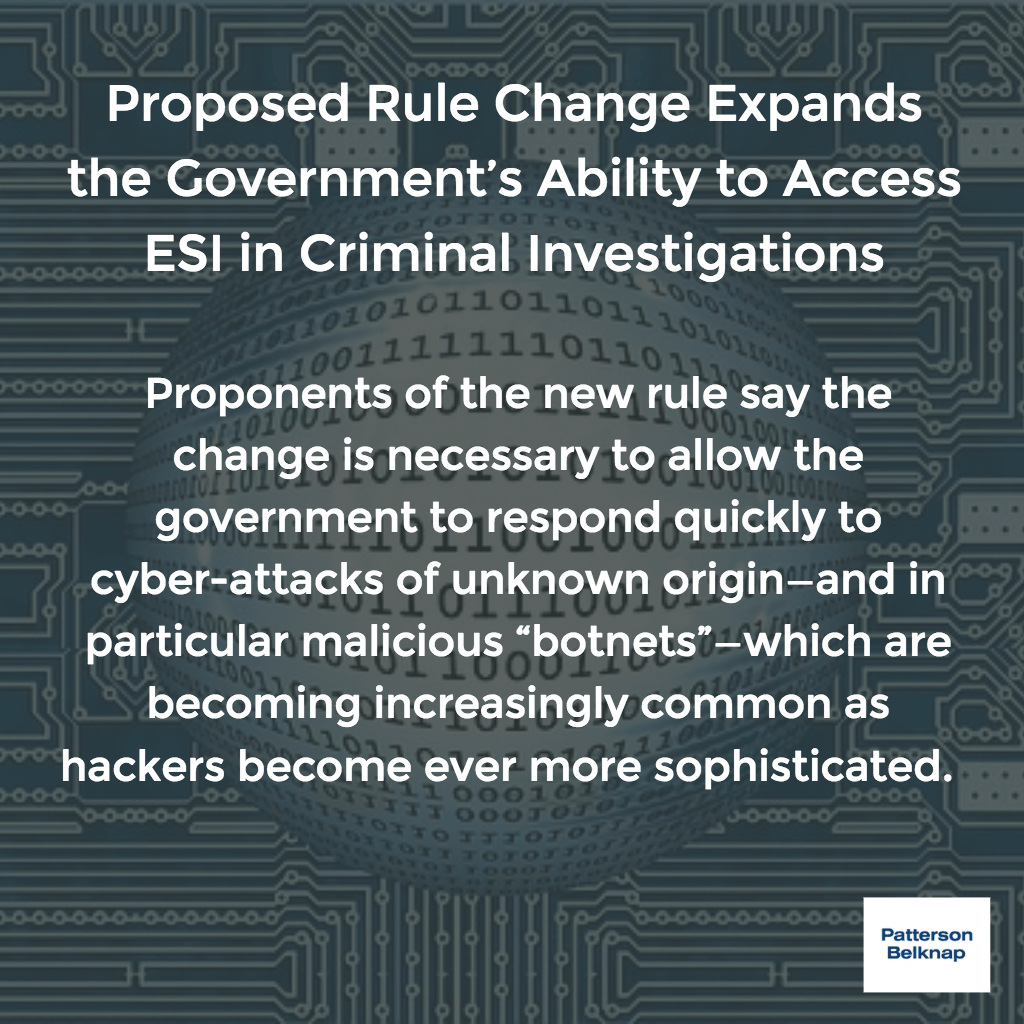ARCHIVED CONTENT
You are viewing ARCHIVED CONTENT released online between 1 April 2010 and 24 August 2018 or content that has been selectively archived and is no longer active. Content in this archive is NOT UPDATED, and links may not function.Extract from article by Thomas Kurland and Peter Nelson
On April 28, 2016 the United States Supreme Court proposed a modification to Federal Rule of Criminal Procedure 41 that significantly alters the manner in which the government can obtain search warrants to access computer systems and electronically stored information that will no doubt have an effect on hackers and hacking victims alike. The modification will go into effect on December 1, 2016, barring Congressional intervention.
The proposed rule change would empower federal magistrate judges in “any district where activities related to a crime may have occurred . . . to issue a warrant to use remote access to search electronic storage media and to seize or copy electronically stored information” regardless of where the computer being searched may be located so long as “the district where the media or information is located has been concealed through technological means” or, in computer fraud cases, “the media are protected computers that have been damaged without authorization and are located in five or more districts.” The full text of the proposed rule change is available here . Under the old rule, the government generally could obtain a warrant to access electronically stored information only from a magistrate in the district where the computer with the stored information was physically located.
Proponents of the new rule say the change is necessary to allow the government to respond quickly to cyber-attacks of unknown origin—and in particular malicious “botnets”—which are becoming increasingly common as hackers become ever more sophisticated.






















